In a recent essay, I discussed the many flaws in the “wise choice” explanation for Eve’s decision to partake of the forbidden fruit. In this piece I advance my own explanation of Eve’s actions in the Garden, to wit: when she partook of the fruit, she was engaging in what I call a “praiseworthy rebellion.” Specifically, she made a conscious decision to yield to the serpent’s entreaties because, for her, Eden was no longer Eden. This thesis is not entirely of my own creation, though I do give it my own “Latter-day twist.”
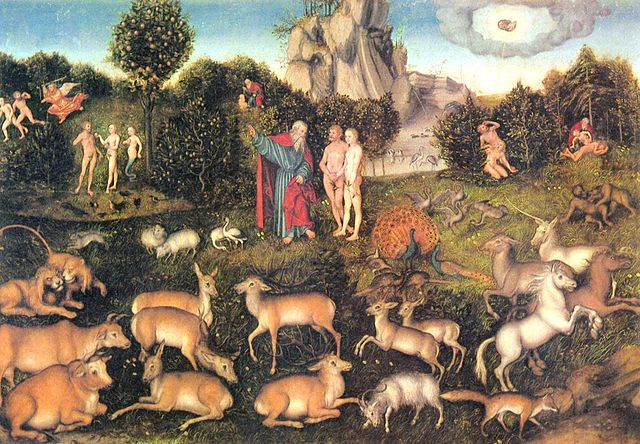
In the beginning, after the earth was formed and populated with all living creatures, “God created humankind in his image, in the image of God he created them; male and female he created them.”[1] He then blesses Adam and Eve, encouraging them to “[b]e fruitful and multiply and fill the earth….”[2] Next, he entrusts them with stewardship of the physical world and grants them dominion over all living things. In all of this, the Lord treats them as equals, two individuals who “are indistinct in both their capabilities and opportunities,”[3] including their ability to interact with the divine.
But in chapter 2, Eve has a rude awakening and discovers the honeymoon is over. For starters, the word “human/male” is now reserved solely for Adam whereas in the first chapter it encompassed both the man and the woman. Further, Eve learns that Adam was created first and given exclusive dominion over the Garden, and he alone names the animals.[4] Moreover, Eve is created from a superfluous body part of Adam, and the stated reason for her creation is to alleviate his loneliness. What about her emotional needs? Might she prefer to be alone?
As the biblical scholar Judith Klistner notes, “the woman in this chapter is derivative.”[5] Even when the text speaks of two of them becoming as “one flesh,” it does so only from the man’s perspective: he is “to leave his father and his mother and cling to his wife.” Did anyone stop to ask the woman how she feels about this arrangement? Nope. Indeed, the first time she is allowed to speak is when the serpent appears.

Interestingly, their conversation is prefaced with this statement: “The two of them were naked the man and his wife, yet they felt no shame. Now the serpent was the shrewdest of all the wild beasts ….” Each of the highlighted words employs the same Hebrew flexible adjective ‘-r-m, which can mean either naked or shrewd.[6] Thus, Eve is presented with a choice: “Do I continue to live in a naïve and idyllic state as a member of an unequal partnership or do I opt for shrewdness and elevate myself to godlike knowledge?” Is it any wonder that the serpent targeted Eve instead of Adam and that she made the choice she did?
After she ate the forbidden fruit, Genesis says she “also gave some to her husband, and he ate.” Then God appears. He is furious at the couple’s disobedience and Lucifer’s behavior. He decrees punishments for all of them, though Adam and Lucifer bear the brunt of the Lord’s wrath. Each is condemned for Adam’s decision to eat the fruit. As a fitting punishment, both will struggle to subsist in a lone and dreary world. Further, the serpent is cursed by God, who also curses the earth to the man’s detriment. And these curses will haunt them “all the days of your life.” But to Eve the Lord simply says: “I will greatly multiply thy pain and thy travail; in pain thou shalt bring forth children; and thy desire shall be to thy husband, and he shall rule over thee.”[7]
Historically, most Christian faiths, including our own, have misconstrued this scripture to entail three punishments. But only the first—Eve’s suffering, especially in childbirth—is prescribed by God. The other two—being subject to her husband’s desire and his control—are merely descriptive of the hierarchal and patriarchal society she is about to inhabit. While her sociological circumstances are not of God’s making, the Lord is saying, “Sweetheart, what you tried to escape here waits for you outside the Garden.”[8]
But was a male-dominated hierarchy destined to last forever? Joseph Smith—as did many others in the 19th century—thought not. This in part is why I believe he amplified Eve’s role in the temple endowment liturgy, portraying her as independent and savvy. For example, before she consented to partake of the forbidden fruit, she demanded the serpent to explain in greater detail why it is necessary for her to do so. Only after she concluded “there is no other way,” did she ascent.
Eve’s reasoning abilities are on full display when she explains to Adam that he has no choice but to eat of the fruit of the Tree of Knowledge. Not only would he be a lone man in the Garden if he didn’t; he would be unable to fulfill the Lord’s command to procreate. Adam instantly is persuaded by her argument and decides to join her.
Support for the proposition that the Smith was attempting to portray Eve as Adam’s intellectual equal (if not superior) can be found in his policy to elevate the status of women in the church. When he created a women’s auxiliary in March 1842—the Relief Society—its stated purpose was “… to expound scriptures, and exhort the Church.”[9] Further, the prophet made a concerted effort to place the Relief Society on par with the priesthood.
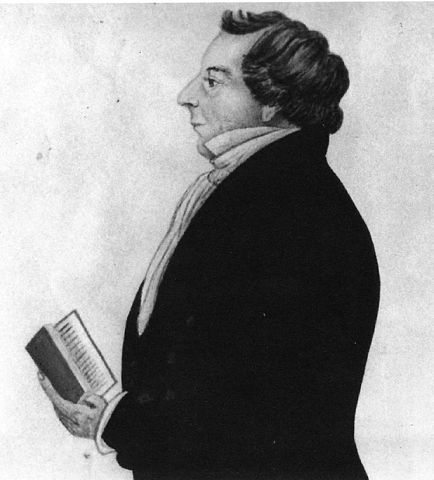
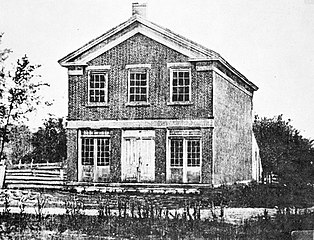
While speaking to the sisters, he said the organization’s officers should be “appointed and set apart, as “Deacons, Teachers, &c. are among us,”[10] and “the Society should move according to the ancient Priesthood.”[11]The organization’s presidency should be accorded the same dignity as “the first Presidency of the church.”[12] Further, he declared that “keys of the kingdom were about to be given to [the sisters], that they may be able to detect everything false—as well as the Elders.”[13]
He also chastised those men who objected to women performing healing blessings, “[I]f the sisters should have faith to heal the sick,” no one should stand in their way.[14] The full import of this statement cannot be grasped until we remember that all anointing rituals in the Mormon church are performed exclusively in a temple, save the anointing of the sick. Joseph actually intended the temple to be a sacred space for healing. As a result, “the expanded initiation rituals of the Nauvoo Temple liturgy [e.g., washing, anointing, sealing, etc.] were also adapted for healing purposes.”[15]
The prophet, I believe, found it easy to conceive of Eve’s actions as a “praiseworthy rebellion” since he saw himself—and was seen by others—as an iconoclast. While the Book of Mormon contains little theology not already extant among the 19th century Protestant denominations, Smith’s claim that God still spoke to man and that a grand, worldwide restoration had begun were revolutionary ideas. But this shouldn’t surprise us since the prophet lived in a revolutionary age when many were fighting for their freedom.
The American and French revolutions and their promise of liberty and self-determination, sparked numerous uprisings, especially in South America. Between 1808 and 1833, a wave of rebellions led to the creation of numerous independent countries, including Paraguay, Chile, Argentina, Uruguay, Brazil, Guatemala and Bolivia. Several Caribbean colonies soon followed in their path.
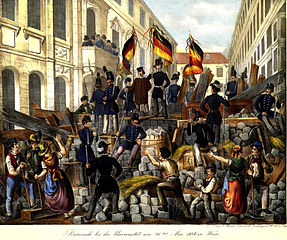

In the Old World, the year 1848 saw people rebel against numerous European monarchies, including those in Sicily, France, Germany, Italy, and the Austrian Empire. While they failed to achieve their immediate objectives, those events gave millions of Europeans their first taste of civil liberties and participation in politics, whetting their appetite for democracy. Workers and others—including women—were politicized and started new movements.[16]
Coincidentally, in 1848, approximately 300 men and women filled a Lutheran church in Seneca Falls, New York—a scant 22 miles from the old Smith family home in Palmyra—where Elizabeth Cady Stanton, walked to the podium and launched what she declared was the “greatest rebellion the world has ever seen.”
“Resolved. That such laws as conflict, in any way, with the true and substantial happiness of woman, are contrary to the great precept of nature, and are of no validity.”
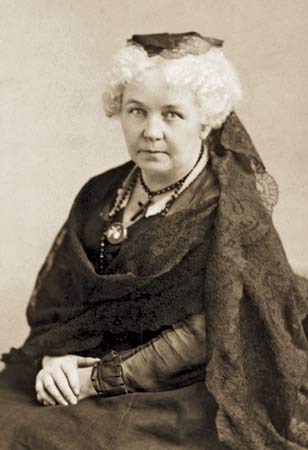
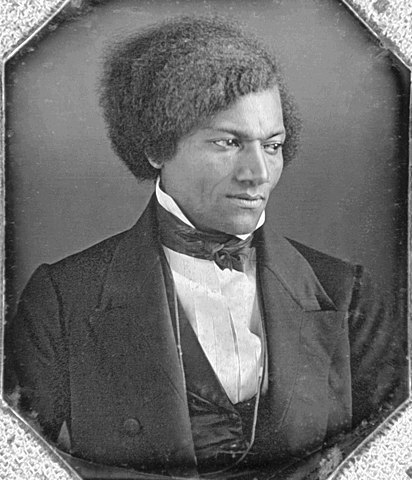
That this meeting took place in a chapel and that Stanton invoked “nature” in her remarks was no coincidence. She saw the nascent women’s movement as part of a great spiritual rebirth sweeping the nation.[17] Also in attendance at the convention was Frederick Douglass, a licensed preacher in the African Methodist Episcopal Zion Church,[18] who spoke in favor of women’s suffrage.
In 1863, the Seventh-day Adventist Church was co-founded by Ellen G. White, a prophetess in the eyes of church members. Under her influence, Adventists were actively abolitionist and also staunch supporters of temperance societies. These causes and the religious revolution of the 19th century were supported by such luminaries as Emerson, Darwin and Whitman, helping to create a western world founded, in equal measure, on (i) spirituality, and (ii) science and reason.[19]
Although many rebellions may be laudable, none is without flaws and contradictions. The American colonists, for example, while objecting to British taxation, were fine with King George’s regulation of trade[20] and were delighted when his troops defended their homes and property during the French and Indian War. Further, the colonists desire for representation in Parliament—“No taxation without representation!”—was disingenuous since they would lack votes to defeat any tax imposed on America.[21] They wanted to be free—that is, they wanted liberty for white, property-owning males. Yet another incongruity.
Similarly, while Eve’s rebellion had praiseworthy motives (e.g., a desire for greater freedom and knowledge), her decision to act unilaterally without giving thought to how her decision would affect others, most certainly was not a wise choice. Arguably, it was a selfish one, though one most of us, I suspect, would have made had we been in her shoes. In a similar vein, while the autonomy and expansive portfolio conferred by Joseph Smith on Relief Society were praiseworthy, his unyielding flirtation with polygamy hardly makes him a champion of women’s rights.
Sadly, the prophet’s views about the priesthood authority of women and their healing powers were repudiated by his successors. It wasn’t until 2015 that the church resurrected some of Smith’s ideas about the ecclesiastical powers of women and acknowledged the priesthood authority of all women who serve as officers, teachers and missionaries.[22]This occurred concurrently with the removal by Salt Lake of much of the remaining sexist and condescending language in the endowment ceremony. According to Dallin Oaks, this was an important shift in church teachings.[23]
When the priesthood was restored in the 19th century, it was prefaced by a disquieting observation: it is the nature and disposition of almost all men in positions of authority “to exercise unrighteous dominion.”[24] Given this tendency of the male of our species, the Lord gives men detailed instructions regarding the manner in which priesthood power should be wielded: only by persuasion, long-suffering, gentleness, meekness, and love unfeigned; and without hypocrisy or guile.[25]
Such admonitions have never been given by the Lord to women, I believe, because there never was any need. While historically their circumstances have limited them to the tools of persuasion, long-suffering and meekness, the revolutionary movements of the past 250 years have also given women license, as needed, to reprove their supposed betters with sharpness and placed them on a more equal footing with their brothers.
Long, long ago, in the most beautiful garden on earth, a woman dreamed a dream that never came true in her lifetime. But the posterity of the Mother of All Living has made great strides towards making that dream a reality, which I’m confident has delighted not only Eve, but our Eternal Parents as well.
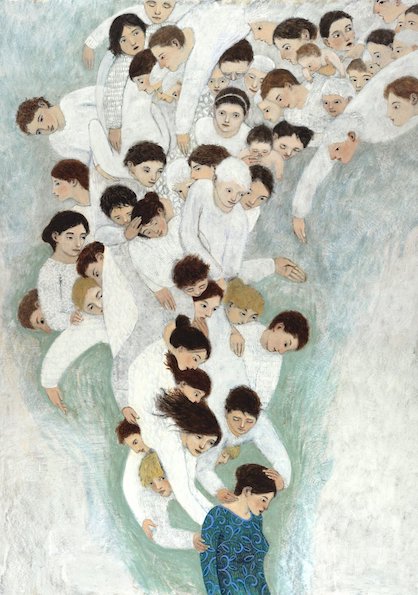
[1] Genesis 1:26 (NRSV). “Humankind” is a more accurate translation of the Hebrew Ha-adam than “man.” While King James Version uses “man,” it uses this term in the plural (“… and let them have dominion over…).
[2] Genesis 1:28 (NRSV).
[3] Judith Klitsner, Subversive Sequels in the Bible: How Biblical Stories Mine and Undermine Each Other, (New Milford, Connecticut: Maggid Books, 2011), p. 97.
[4] Ibid, pp. 97-98.
[5] Ibid, p. 99.
[6] Ibid, p. 102.
[7] Ibid, pp. 107-108.
[8] The biblical scholar Robert Alter also notes the contradictions between Genesis 1 and 2, but then makes this astute observation: “[This discrepancy] makes perfect sense as an account of the contradictory facts of woman’s role in the post-edenic scheme of things, [given that] the writer is a member of a patriarchal society in which women have more limited legal privileges.” Robert Alter, The Art of Biblical Narrative, (New York, New York: Basic Books, 1981), pp. 145-146.
[9] D&C 25:7.
[10] “Minutes of the Relief Society Nauvoo,” transcribed by Eliza R. Snow, (First Meeting of the Society, Nauvoo Lodge Room, March 17, 1842) p. 7.
[11] Ibid, (Third Meeting of the Society, Nauvoo Lodge Room, March 31, 1842), p. 21.
[12] Ibiid, (First Meeting of the Society, Nauvoo Lodge Room, March 17, 1842) p. 6.
[13] Ibid, (Sixth Meeting of the Society, Nauvoo Lodge Room, April 28, 1842), p. 37.
[14] Ibid, (Sixth Meeting of the Society, Nauvoo Lodge Room, March 17, 1842) p. 35.
[15] Jonathan A. Stapley, The Power of Godliness: Mormon Liturgy and Cosmology, (New York, New York: Oxford University Press, 2018), p. 83.
[16] Mike Rapport, 1848: Year of Revolution, (New York, New York: Basic Books, 2008), p. 400.
[17] Dominic Green, The Religious Revolution: The Birth of Modern Spirituality, 1848-1898 (New York, New York: Farrar, Strauss and Giroux, 2022), pp. 27, 29.
[18] Gregory P. Lampe, Frederick Douglass: Freedom’s Voice, 1818-1845, (East Lansing, Michigan: Michigan State University Press, 1998), pp. 42-44.
[19] Ibid.
[20] Gordon Wood, Power and Liberty: Constitutionalism in the American Revolution, (New York, New York: Oxford University Press, 2021), p. 19.
[21] Russell Kirk, Edmund Burke: A Genius Reconsidered, (Wilmington, Delaware: Intercollegiate Studies, 1997), pp. 19-20.
[22] “Joseph Smith’s Teachings about Priesthood, Temple, and Women,” accessed on April 30, 2022.
[23] The Power of Godliness, p. 30.
[24] D&C 121:39.
[25] D&C 121:41-42.

Adam and Eve disobey the Genesis 1:28 commandment–the first commandment–to “be fruitful and multiply [in the Garden]” when they become one flesh incorrectly (Genesis 2:24) by eating from the wrong tree in the allegorical Garden’s center (Genesis 2:9). So they disobey not just one commandment, but two at the same time.
That is an excellent point, Robert, one to which I have long subscribed. There is no basis for our belief that partaking of the fruit from the tree of knowledge of good and evil was a precondition to procreation. Had Adam and Eve patiently waited for “further light and knowledge,” they might have avoided considerable suffering. But we humans are not known for “patiently waiting.”